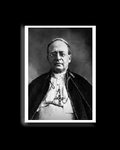Unbusinesslike Businessby
G.K. Chesterton(From the book
Utopia of Usurers)

The fairy tales we were all taught did not, like the history we were all taught, consist entirely of lies. Parts of the tale of "Puss in Boots" or "Jack and the Beanstalk" may strike the realistic eye as a little unlikely and out of the common way, so to speak; but they contain some very solid and very practical truths. For instance, it may be noted that both in "Puss in Boots" and "Jack and the Beanstalk" if I remember aright, the ogre was not only an ogre but also a magician. And it will generally be found that in all such popular narratives, the king, if he is a wicked king, is generally also a wizard. Now there is a very vital human truth enshrined in this. Bad government, like good government, is a spiritual thing. Even the tyrant never rules by force alone; but mostly by fairy tales. And so it is with the modern tyrant, the great employer. The sight of a millionaire is seldom, in the ordinary sense, an enchanting sight: nevertheless, he is in his way an enchanter. As they say in the gushing articles about him in the magazines, he is a fascinating personality. So is a snake. At least he is fascinating to rabbits; and so is the millionaire to the rabbit-witted sort of people that ladies and gentlemen have allowed themselves to become. He does, in a manner, cast a spell, such as that which imprisoned princes and princesses under the shapes of falcons or stags. He has truly turned men into sheep, as Circe turned them into swine.
Now, the chief of the fairy tales, by which he gains this glory and glamour, is a certain hazy association he has managed to create between the idea of bigness and the idea of practicality. Numbers of the rabbit-witted ladies and gentlemen do really think, in spite of themselves and their experience, that so long as a shop has hundreds of different doors and a great many hot and unhealthy underground departments (they must be hot; this is very important), and more people than would be needed for a man-of-war, or crowded cathedral, to say: "This way, madam," and "The next article, sir," it follows that the goods are good. In short, they hold that the big businesses are businesslike. They are not. Any housekeeper in a truthful mood, that is to say, any housekeeper in a bad temper, will tell you that they are not. But housekeepers, too, are human, and therefore inconsistent and complex; and they do not always stick to truth and bad temper. They are also affected by this queer idolatry of the enormous and elaborate; and cannot help feeling that anything so complicated must go like clockwork. But complexity is no guarantee of accuracy--in clockwork or in anything else. A clock can be as wrong as the human head; and a clock can stop, as suddenly as the human heart.
But this strange poetry of plutocracy prevails over people against their very senses. You write to one of the great London stores or emporia, asking, let us say, for an umbrella. A month or two afterwards you receive a very elaborately constructed parcel, containing a broken parasol. You are very pleased. You are gratified to reflect on what a vast number of assistants and employees had combined to break that parasol. You luxuriate in the memory of all those long rooms and departments and wonder in which of them the parasol that you never ordered was broken. Or you want a toy elephant for your child on Christmas Day; as children, like all nice and healthy people, are very ritualistic. Some week or so after Twelfth Night, let us say, you have the pleasure of removing three layers of pasteboards, five layers of brown paper, and fifteen layers of tissue paper and discovering the fragments of an artificial crocodile. You smile in an expansive spirit. You feel that your soul has been broadened by the vision of incompetence conducted on so large a scale. You admire all the more the colossal and Omnipresent Brain of the Organiser of Industry, who amid all his multitudinous cares did not disdain to remember his duty of smashing even the smallest toy of the smallest child. Or, supposing you have asked him to send you some two rolls of cocoa-nut matting: and supposing (after a due interval for reflection) he duly delivers to you the five rolls of wire netting. You take pleasure in the consideration of a mystery: which coarse minds might have called a mistake. It consoles you to know how big the business is: and what an enormous number of people were needed to make such a mistake.
That is the romance that has been told about the big shops; in the literature and art which they have bought, and which (as I said in my recent articles) will soon be quite indistinguishable from their ordinary advertisements. The literature is commercial; and it is only fair to say that the commerce is often really literary. It is no romance, but only rubbish.
The big commercial concerns of to-day are quite exceptionally incompetent. They will be even more incompetent when they are omnipotent. Indeed, that is, and always has been, the whole point of a monopoly; the old and sound argument against a monopoly. It is only because it is incompetent that it has to be omnipotent. When one large shop occupies the whole of one side of a street (or sometimes both sides), it does so in order that men may be unable to get what they want; and may be forced to buy what they don't want. That the rapidly approaching kingdom of the Capitalists will ruin art and letters, I have already said. I say here that in the only sense that can be called human, it will ruin trade, too.
I will not let Christmas go by, even when writing for a revolutionary paper necessarily appealing to many with none of my religious sympathies, without appealing to those sympathies. I knew a man who sent to a great rich shop for a figure for a group of Bethlehem. It arrived broken. I think that is exactly all that business men have now the sense to do.
 riations in the eternal market, or some calamity of climate, things begin to go wrong. The annual wealth produced by the oasis declines. But the interest on the money lent must still be paid. As the cultivators get more and more embarrassed they borrow in order to pay that interest, and there comes a time of "overlap," during which, paradoxically enough, the banker appears to be more and more prosperous, though the community which supplies him is getting less and less so. But it is mere arithmetic that the process must come to an end. There will arrive a moment after which the cultivator can no longer find the money to pay the interest, which has long since ceased to be morally due. Mere coercion under an all-powerful police system has got the last penny out of him. The "overlap" between real prosperity and apparent-merely financial or paper- prosperity ceases; and the temporary wealth enjoyed by the lender comes to an end, as had previously come to an end the real prosperity of the borrower.
riations in the eternal market, or some calamity of climate, things begin to go wrong. The annual wealth produced by the oasis declines. But the interest on the money lent must still be paid. As the cultivators get more and more embarrassed they borrow in order to pay that interest, and there comes a time of "overlap," during which, paradoxically enough, the banker appears to be more and more prosperous, though the community which supplies him is getting less and less so. But it is mere arithmetic that the process must come to an end. There will arrive a moment after which the cultivator can no longer find the money to pay the interest, which has long since ceased to be morally due. Mere coercion under an all-powerful police system has got the last penny out of him. The "overlap" between real prosperity and apparent-merely financial or paper- prosperity ceases; and the temporary wealth enjoyed by the lender comes to an end, as had previously come to an end the real prosperity of the borrower.






















